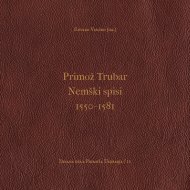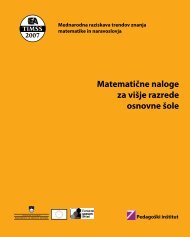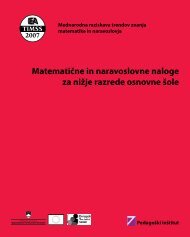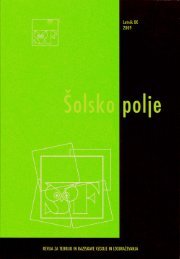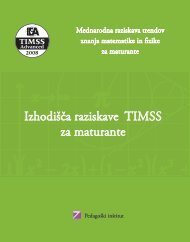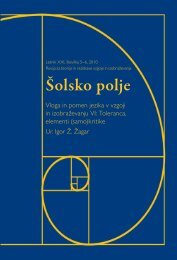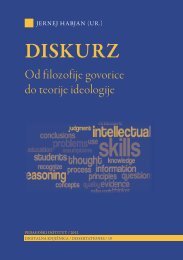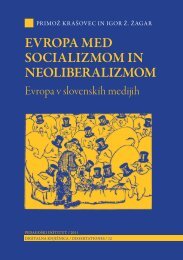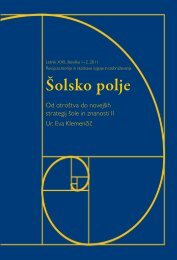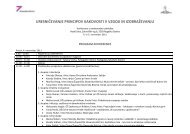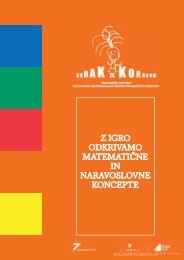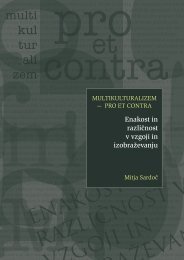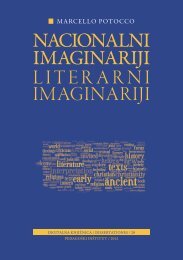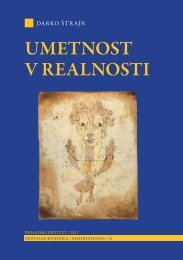Šolsko polje, letnik XX, številka 5-6, 2009: Vloga ... - Pedagoški inštitut
Šolsko polje, letnik XX, številka 5-6, 2009: Vloga ... - Pedagoški inštitut
Šolsko polje, letnik XX, številka 5-6, 2009: Vloga ... - Pedagoški inštitut
Create successful ePaper yourself
Turn your PDF publications into a flip-book with our unique Google optimized e-Paper software.
120 ŠOLSKO POLJE LETNIK <strong>XX</strong> ŠTEVILKA 5/6Argumentation schemes/higherlevel semanticrelationsnegative other-representationnegative other-representationRhetorical devices/linguisticmeanspresupposition: The Balkanused to mean somethingbad and now it is trueagainirony: Who would competeto become a member of somethingthat is bad?implicature: one who belongsto the Balkans is lostExamplesThe Balkans as a pejorativeterm have returned to themselves...and among the Balkan nationsthere is a competitionover which one belongs to theBalkans which means is lostpositive Europe representationtopos of comparison (thosebelonging to the Balkansand those who have escaped),presupposition: theBalkans is dirty, corruptedand full of hatred, negativesemantic contextand which one has managedto escape the dirt, corruptionand hatred of the Balkansand can be counted as a partof Europe, that means of civilizationThe sentence ‘the Balkans as a pejorative term’ presupposes the long-termnegative legacy of the Balkans, which ‘has again returned’, which is a ratherpersonal and ungrounded individual authority claim. The metaphor of competitionover who ‘belongs to the Balkans’ is used in an ironic sense wherebythe already negative semantic context surrounding the Balkans-as-synecdocheis stressed to create an even further distance from the region and itsentailments for who would compete to stay in its dirt and corruption. Theelaboration of this claim in the following sentence is also interesting becausea value judgment is made between the lost and uncivilized who remainin the Balkans and those who have escaped its dirt, corruption and hatredand can be counted as a part of Europe, that means of civilization. This is ahegemonic meaning-making; in the HR’s words Europeanization, under theinternational community’s terms and supervision, becomes the only way inwhich BiH can become democratic, self-sustaining, and self-confident. Thebiblical reference of salvation is also tacitly present: the verb escape (escape-succeed in getting away or breaking free from, flee) is connected withgetting away from something negative or binding while the noun escape issynonymous with flight (noun) and translates into Serbian as ‘save oneself’.By this analogy ‘escaping the Balkans’ could translate as an act of salvation.While there is little self-criticism in the OHR discourse, there is a lotof negative other-presentation. The more negatively presented BiH or itspoliticians are, the longer and more justifiable the mandate of the IC and



